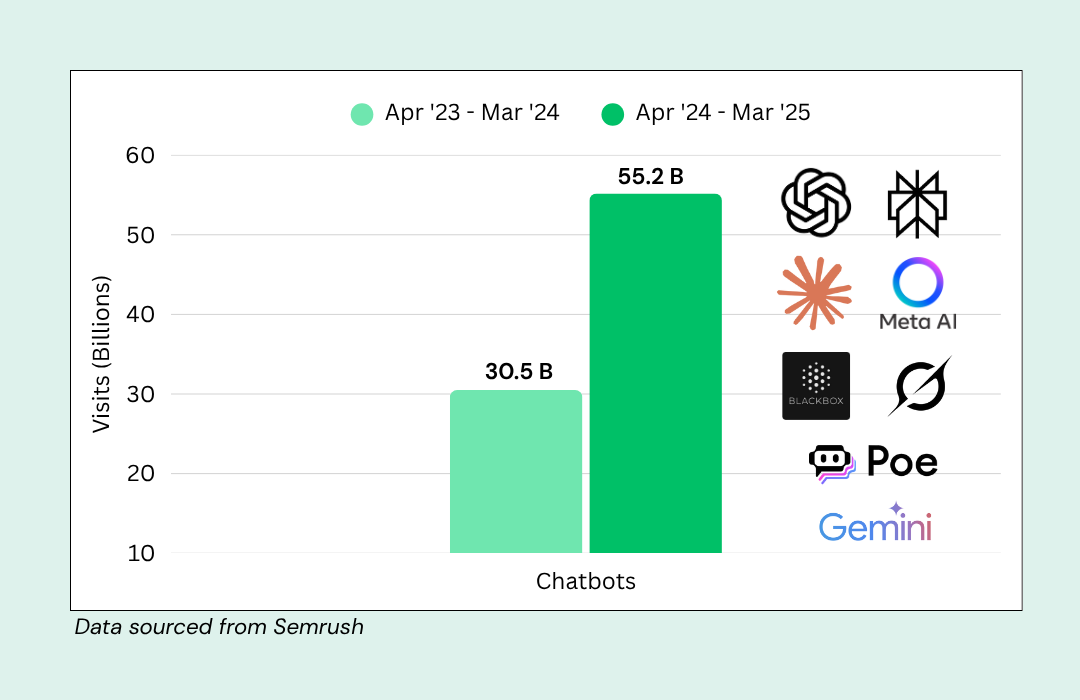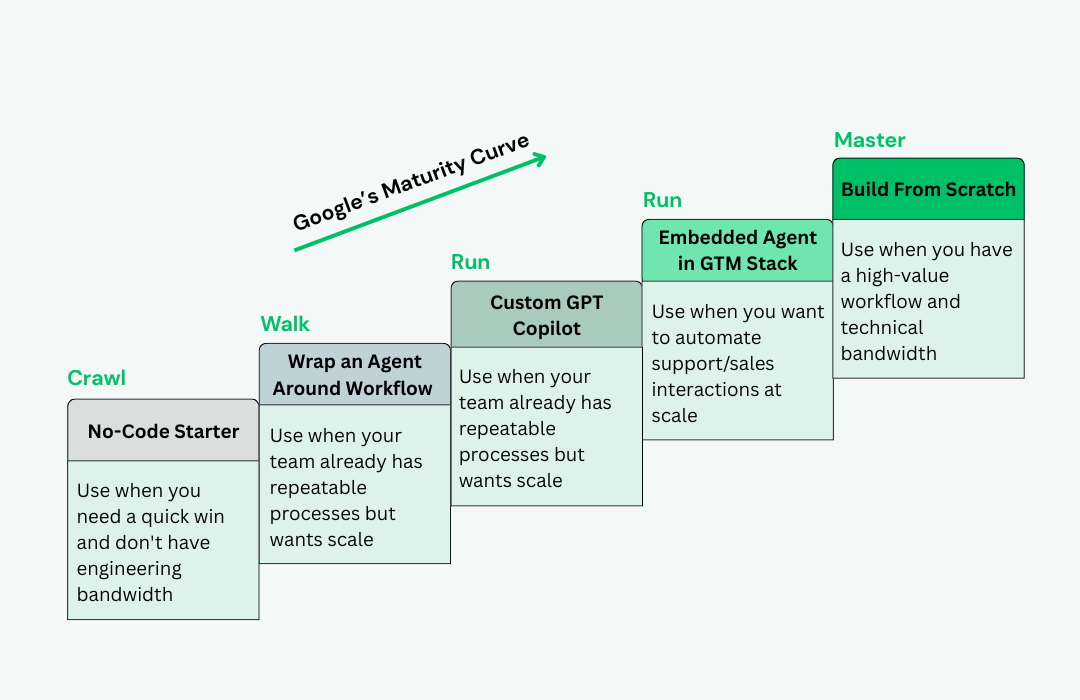In 2009, I was desperate…
I had just spent six miserable months trying to become a financial advisor after my dream career of being a spy for the DoD didn’t pan out.
I was a year past my last semester of college, newlywed, on crutches from major knee surgery, and we were expecting our first child. Desperate for an income, but also desperate for a career I loved, I scoured job boards and my very limited Linkedin network for leads. Nothing really stood out until I stumbled across a “Director of Sales and Client Relations” role with a company called Jammony.
Jammony was a little startup (I didn’t know then that it was literally just Matt) focused on making the process of getting a fair mortgage more streamlined and fair.
I knew the mortgage industry was massive, and I liked the idea of helping people not be taken advantage of. It just clicked for me. I emailed my application in and ended up being hired in a role I was way underqualified for on paper.
But what a ride! Today, I’m Sr. Director of Sales and love what I do.
A career in sales could be best choice of your life. But how do you get started in sales? And if you’re already in sales, how do you adjust your goals and take your career to the next level?
Keep reading as I share my story and offer some tips that could help you get your 1st (or next) sales role.
4 Steps to Get Your First Sales Job
Step 1: Define Your Career Goals
Without goals, you’ll flounder. So even if you’re ready to start sending out your resume NOW, hold off for just a second.
Let’s talk first about what you want to achieve in your career.
For example, my ultimate goal is to build a company from the ground up and have enough disposable income to angel invest in other startups. To that end, when I was looking for my first sales job, I wanted something that would make me more capable as a leader and build my business acumen.
It’s so important to have that level of clarity into where you want to be when you’re done with your career. It will make all the little decisions in between so much easier!
So ask yourself…
Where do you want to be in 5 years? 10? When you die? Once you know the answer, think about how you can back into that plan.
RELATED: PODCAST 42: How Sales Managers Should Build Their Career Path w/ Jamie Scarborough
One of my favorite job candidates ever was looking for an SDR role and willing to take a major pay cut because his current employer wasn’t helping him reach his goal of becoming a CRO by 2026.
He was so specific and driven, that I didn’t even raise my eyebrows when I heard this 25-year-old kid tell me he was going to run an entire revenue organization in 10 years.
When I ask people in interviews where they want their sales career to take them, most say something along the lines of, “I’d kinda like to be in a management role,” or, “Hopefully an enterprise closer.”
Those responses are so white-bread basic, they show me that the candidate really hasn’t thought out what they want. From where I sit, hiring them will be a dice roll.
ACTION ITEM: Create a concrete, very specific plan for what you want to accomplish. To help, think about why you want what you want.
Step 2: Find the Right Company and Goal
Not every sales job will be a good fit for you. And even if you love sales, you may enjoy working at one company more than another.
So step 2 in starting your sales career is to find the right company for YOU.
The job description for Jammony was exactly what I wanted: A blank canvas. The opportunity to learn sales, marketing automation, CRM skills, customer support, channel partnerships, etc.
I knew each of these skills would make me a better entrepreneur. On top of that, this job had a mission I could get behind and a hustler-CEO who wanted to take down all the corruption in the mortgage industry.
It was a perfect fit.
I cannot stress enough how important it is to get into the RIGHT company. The companies you hitch your wagon to will make or break your career trajectory.
Some companies pay great but will drive you to depression because of jerk bosses, products that fail your customers, or crazy commute times. I’ve made a few bad employer choices in the past and paid for it dearly.
RELATED: The Secret To Sales Success – Sell What You Love
Factor in what matters to you, and never apply to a company with the attitude of, “I just need experience. I’ll take whatever I can get.”
The only exception: If you are literally on the brink of getting evicted because you can’t pay your rent, take the first sales job you can find. It’s so much better to take an extra month or two to find the role that will get you to your long-term goals.
Here’s a quick list of things to pay attention to:
- Does the company vision resonate with you?
- Would you go to war for the CEO?
- Would you go to war for the person who would be your direct boss? What about that boss’s boss?
- Would you enjoy the office environment?
- When it’s time to move on from that company, will you be SIGNIFICANTLY closer to your long-term career goals?
- Will your experience at the company be admired, or will it cause people to question you?
- Is the product truly disruptive?
- Will you be happy with the compensation?
- Do people appear happy? (Note, I’m not just talking about HR Recruiters and the hiring manager here.)
ACTION ITEM: Make a “must have” list of qualities you’d love to see in your first sales job. Consider these your deal-breakers. If a company doesn’t have these qualities, take a hard pass.
Step 3: Get the Job
Once you know what you want and where you’re headed, it’s time to get the job.
For this, you’ll need:
- To create a killer resume
- Get the word out that you’re available for a good sales job
- Get (and nail) your interview
- Follow up until you hear a definite yes or no
Here’s how went for me…
Unemployment was a bit higher in 2010 than it is now. I had no real experience that related to the role, and there were dozens of other applicants.
The first thing Matt told me when I sat down to an interview was, “You’re here for one reason: because you’ve worked as a waiter.”
That’s all I had to go on. But it also told me a lot about what Matt expected from whoever he would hire. He liked the hustle and customer-centric role of the foodservice industry, so he was willing to give me a shot.
I knew I had to stand out, so I told him what attracted me to the company and promised him I’d be the best person for the role.
RELATED: How To Get a Sales Job: Do’s & Don’ts That Could Make or Break The Decision (Part 3 of 3)
He was busy. As a one-man shop, he was dealing with everything my role would be taking on, plus website development, mortgage and real estate licensing, and more.
I didn’t hear from him for a few days so I called him back.
He didn’t answer, so I emailed.
Then I emailed again.
After a few weeks later, he called and told me that it was clear how much I wanted this role — and offered me the job!
Listen…
I know there are a billion blogs out there saying it’s an employee’s market. Unemployment is at an all-time low and companies can’t hire salespeople fast enough. You know what, tho? There is no shortage of BAD TALENT!
For a recent role I hired for, I had over 60 applicants and only 3 people did anything to stand out.
To make sure you stand out, here are a few tips:
- Don’t just apply and wait for a response.
- Write a cover letter with the official application. (Less than 10% of my applicants do this.)
- Get creative if you want the role: video, handwritten notes, treats. STAND OUT like you need to in the actual role when selling.
- Follow up.
- In an interview, don’t ask about things that aren’t INTEGRAL to your decision. I had a guy whose only question to me was, “How are your onsite fitness facilities?” (That tells me where his mind will be when he’s on the job!)
- Ask for the next steps and verbally express interest if you are indeed still interested after the interview, phone screen, etc.
- Read books, blogs, listen to podcasts, etc. I always ask about these things. I want salespeople who want to learn.
ACTION ITEM: Read 27 Sales Interview Questions (and How to Answer Them Like a Boss. Practice answering different types of interview questions. Then, prepare a list of questions you can ask your interviewer.
Step 4: Excel in the Role
You got the job! Congrats! Now, it’s time to show them what you’re made of.
Bottom line, your company hired you because they believed you could help make them more profitable. So that’s got to be your highest priority.
After I started my new sales job, I started making calls the second I was allowed to. By the time I was 3 months in, I had several all-nighters trying to get the site up and running, rebuild pricing APIs, and more — including getting comfortable rubbing shoulders with a CEO.
If I didn’t know how to do something I was asked to do, I didn’t ask Matt to do it. I used Google to find a solution. I did not wait for the success to come to me. I went out and took it.
It paid off. In addition to the experience I was looking for, I was given the ability to recruit, hire, and train a small staff.
I was GREAT at that role, and the experience I gained in my first 3 years as a professional has been some of the most valuable to my career!
Here are some things to know and do when you start your first sales job:
- First 90 days are the most important for impressions on work ethic, culture fit, etc.
- You have an advantage with no old deals or leads distracting you. Keep it that way, and keep your CRM clean from day 1.
- Introduce yourself to everyone. Look for mentors and ask them to help you.
- Don’t be afraid to fail. Just acknowledge your shortcomings and work with your boss to get better.
- Use a proven sales methodology. I’m partial to Winning By Design and GAP Selling, but you’ve gotta find something that works and nail it.
ACTION ITEM: Get your mindset right. Visualize yourself “all in” in your new job. Then rest up so you can give it your all.
RELATED: 7 Habits of Highly Successful SDRs
Summary
You aren’t entitled to a high-paying job.
You aren’t entitled to a job at all.
Find that dream sale job by being strategic, standing out, and outworking everyone’s expectations.
Do that, and you’re well on your way to a successful career in sales.
It’s not complicated, but it’s not easy, either. Always remember, you aren’t special until you make yourself special. So do what it takes to truly stand out.
Why do you want a career in sales? What are the qualities you’re looking for in your first sales job?







